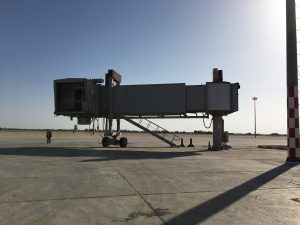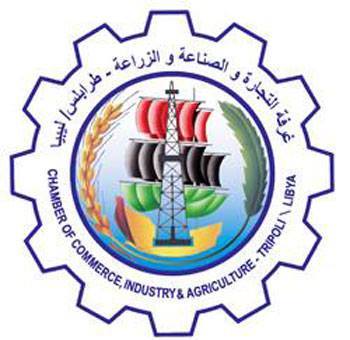By Michel Cousins.

Paris, 23 July 2017:
Italy’s Aeneas consortium which earlier this month won the contract to build new international and domestic terminals at Tripoli International Airport, says that the project will see numerous subcontracts going to local companies.
“Many job opportunities for locals will be available,” Alessio Bucaioni, the commercial director of Consorzio Aeneas, told the Libya Herald.
That will not just be for the construction period, he added, pointing out that statistics in Europe showed that a thousand airport jobs were created for every million passengers.
The international terminal is to have a capacity of 4.5 million passengers a year.
The two terminals are to be built on the site of the old one, destroyed in 2014. They would be “appealing and functional” and with better capacity than other airports in North Africa, Bucaioni stated, adding that all systems would in line with international standards and regulations. The design was being approved by Libyan authorities. It was also being supervised by ENAC, Italy’s civil aviation authority.
The consortium, which he said was formed in September last year specifically for the Tripoli project, consists of five companies: Bari-based Gruppo Mazzitelli , Axitea SpA (Milan) which specialises in security systems, Rome construction and engineering consultants Two Seven, Escape and Lion Consulting. Although there were no plans to expand the consortium, other suppliers would be used, he added.
“Anyone who is in a position to support us in the implementation of the project would be welcome on board,” he declared.
According to him, the five have been working in airport projects for the past 20 years and have more than 70 years’ experience in infrastructure construction. They had, he stated, been involved in design and providing systems at Rome’s Fiumicino airport, Milan’s Malpensa, Catania and Cagliari as well as operating systems at numerous other airports in Italy, India, Spain and Kosovo. They had been contacted by the Italian foreign ministry last September to show the Presidency Council’s transport minister Milad Matouk what they had achieved at Catania.
“In Catania we realised in 2003 a similar terminal fully equipped and operational in six months”.
In line with all international construction contracts, the consortium would place a bond with the ministry, adding that this was proof of its confidence in being able to implement the project.
“No company would take the chance of issuing performance bonds unless it is perfectly sure to be able to carry out the project in full and to the utmost satisfaction of its counterpart,” he stated.
“Our target is to work at our best and bring to completion an excellent project for the Libyan population to enjoy,” Bucaioni insisted.
“We signed this contract because we are sure that we are in a position to finalise the project in the best way and within the accepted deadline.”






